Wondering how to create a lead magnet that brings more subscribers to your email marketing list?
A good lead magnet is important for bringing in new potential customers. They work very well for lead generation and can be quite easy to create.
In this tutorial, we’ll show you how to create a lead magnet for your business.
Let’s get started!
What is a Lead Magnet?
A lead magnet is a piece of content that attracts leads, or potential customers, into your marketing or sales funnel.
Most people do not hand out their email addresses to everyone who asks. They need to have a reason to share that information with you.
A lead magnet is something valuable you give in exchange for a prospect’s contact information. That’s usually an email address, but it can also be their phone number for SMS marketing messages or a sales call. In some situations, lead magnets are used to attract prospects for a sales meeting in person or virtually.
For example, this fashion brand offers a styling cheat sheet to customers who subscriber to their email list.
What Makes an Effective Lead Magnet?
An effective lead magnet must do 2 things:
- solve a real problem for your audience
- serve your business
A list of your favorite songs isn’t going to be very attractive to anyone except maybe your friends and family. But a linked playlist of songs to motivate a workout or job search might be very valuable to your target audience, especially if they need that motivation to get the results they want.
Your lead magnet should also be related to your business. If you sell stationery items, that motivational workout playlist may not bring in leads that are particularly interested in your product. A checklist or guide for organizing a home office might be a better idea.
A great lead magnet doesn’t need to solve huge problems. You can create lead magnets that are simply aesthetically pleasing or deliver a bit of extra convenience. The key is to position the lead magnet as something high-value that subscribers can get for free.
Ideally, a high-quality lead magnet should also help the prospect realize their need and desire for your product or service. This will make them more receptive to your marketing. The lead magnet itself doesn’t always make a sales pitch, and it’s often better not to sell in a lead magnet. Instead, use the lead magnet to nudge the customer to want more. Think of it as a free appetizer for your paid offers.
Let’s take a look at some examples to see what makes a good lead magnet.
Best Lead Magnet Examples & Types
In this section, we’ll learn about several different types of lead magnet content you can create. You can deliver these lead magnets in a variety of formats: PDF download, video, Notion template or other digital file, or even as a gated content page on your website.
1. Free Guide or Report
A report or white paper is an in-depth document that shares your unique data, insights, or advice.
Reports are especially good lead magnets for educating customers about more complex products and services that require a longer sales cycle. You can also create mini guides or eBooks that explain a specific topic related to your offers.
For example, here at OptinMonster we happen to have a software product that’s great for reducing page abandonment and improving conversion rates. But before someone can be ready to get started with OptinMonster, they need to understand the strategies behind converting website visitors to subscribers. Without that, the many features of OptinMonster just won’t make any sense. So we pulled together a report on the topic and offered it as a lead magnet.
2. Toolkit
A toolkit is a practical lead magnet that gives your audience an inside peek at what you use to get the results that you do.
In fact, our CEO offers a free business growth toolkit on his personal website!
You don’t need to worry about “giving away” your best knowledge and skills. Just because someone has the tools and processes you use doesn’t mean they have the experience and expertise to pull off the same results.
If anything, toolkit lead magnets can be a great way to show prospects how much they don’t know and need your help. And since you gave them something valuable for free, they’re more inclined to turn to you when they’re ready to hire you or buy your products.
3. Webinar
Whether live or on-demand, webinars are an interactive upgrade to the typical download lead magnet. Video content is more engaging for many customers.
If you have live webinars, you have the chance to interact with potential leads, answer their questions, and position yourself as helpful and knowledgeable. Pre-recorded or on-demand recordings of live webinars can continue generating leads for months or even years afterward.
We run webinars every week on list-building strategies. Participants learn how to create irresistible lead magnet offers, which they can implement with or without OptinMonster.
The important thing to remember is not to turn your webinar into a straight sales pitch. Always give something valuable before you ask for someone’s investment.
4. Free Trial
Offering a free product sample or software trial is an effective way to let customers try the product for themselves. It also plays into the tendency to not want to lose what you already have. If customers start using a cosmetic product or software, they’re less likely to want to stop.
In order to get their free trial, they’ll need to create an account or sign up with their email address. You’ll be able to communicate with them about their trial, and then ask if they want a paid subscription when the trial ends.
5. Discount
Everybody loves getting a bargain and saving money. That’s why discount codes and free shipping are some of the most powerful lead magnets around. Shoppers enter their email address and get a coupon code sent to their email. This has the added bonus of training customers and their inboxes to recognize your email messages.
6. Quiz
Quizzes or assessments are interactive lead magnets that can convert extremely well. Visitors answer a series of questions. They must enter their email address to see their results.
Quizzes are a fantastic way to help prospects identify their own needs for your service or products. For example, this quiz helps online business owners identify what kind of online course best fits their needs. The creator of the quiz can then email them tips about building their course in that format.
7. Checklist or Cheat Sheet
Checklists and cheat sheets are exactly what they sound like: an actionable worksheet with steps to follow or standards to meet to get the desired results.
For example, we made a checklist for creating the ultimate optin form:
Again, giving away a checklist doesn’t mean that you’re making your product or service irrelevant. You’re just showing customers how smart and capable you are. If they find your checklist helpful, they’ll trust you more and may eventually buy something.
8. Free Consultation or Demo
Giving away live audits and demonstrations may not be for everyone. It’s far more time- and labor-intensive than anything else on this list. But for customers with complex needs, bigger budgets, and longer sales cycles, it can be worth the effort to get face time with new leads.
9. Template
Editable templates are super valuable lead magnets, especially for software sales. Not only do they give the customer a reason to sign up for an account, the template also guides them in using the software successfully. This company offers free scope templates as part of the software’s value proposition and lead generation system.
Creative businesses can offer template spreadsheets, documents, slide decks, and more. This shows off your skills and makes your customer’s lives easier. A win for everyone!
10. Email Course
Sometimes your emails can be a lead magnet all on their own! Email courses are a series of emails that teach a specific topic.
Email course lead magnets give you many touch points with a new subscriber because you’re sending them a new lesson every week. You get a chance to build trust and authority over time.
You can even take a portion of your paid course and convert it into a free email course lead magnet, like this money management course:
11. Case Studies
A case study details how one of your clients or customers solved their problem with your product or service. Case studies show new leads what it’s like to work with you or own one of your products.
The most effective case studies demonstrate realistic, typical results. It also shows exactly how your solution works, and should inspire readers to think, “This person is similar to me, and I want this result too!”
How to Create a Good Lead Magnet
Now that you’ve seen a few lead magnet ideas, let’s go over how to create a lead magnet that actually converts. Regardless of what format you choose, you can follow this process.
1. Define the Buyer
Before you pull up your graphic design software or start building a signup form, you need to think strategically about your lead magnet. The first thing you need to decide is what kind of buyer persona you’re hoping to pull in with this lead magnet.
Ask yourself:
- What product or service are you hoping to sell?
- Who wants this offer?
- Why do they need it?
- What pain points are they experiencing?
You also need to consider the customer’s level of awareness. They may be:
- Unaware: They have no idea or can’t describe what their problem is
- Problem Aware: They know there’s a problem but don’t know if there’s a solution
- Solution Aware: They know of ways to solve their problem but don’t have the specific tools or processes to do it
- Product Aware: They know your company, product, or service exists, but aren’t aware of everything you can do for them, or aren’t convinced it will work for them
- Most Aware: They know all about your offer and how it can help them, but just haven’t bought yet
New leads typically come in unaware, problem aware, or solution aware. The next step will be defining the problem your lead magnet will solve for them and how much awareness that will build.
2. Identify the Problem You’re Solving
Like we mentioned earlier, effective lead magnets will solve specific problems. These may not be complete solutions, but it will give the subscriber a quick win to start building trust in your brand.
It may be easier to start by thinking about the problem your paid product solves. Then work backwards to define a problem that your lead magnet can solve.
For example, a company may be selling an SEO plugin for WordPress. That paid product solves the problem of creating SEO-friendly content more easily. Before a customer is ready for that product, they would need to know how well their site is performing on search in the first place. So their lead magnet could be a quick SEO audit checklist, which would solve the problem of understanding their current SEO performance.
Your goal is to build awareness with your lead magnet and throughout your sales and marketing funnel. Most steps in the funnel will build just 1-2 awareness levels at a time. It can be a stretch to take someone from unaware to most aware with a single download, but it would be relatively easy to take them from problem aware to solution aware.
Going back to our SEO plugin example, before using the lead magnet, prospects may be completely unaware they have any SEO issues that need to be solved. After completing the audit checklist, they become aware of the SEO problems on their site. They are then ready to receive more marketing material about the plugin.
3. Position Your Lead Magnet
The last bit of strategic planning you should do is to position your lead magnet appropriately in your sales process. In other words, think through what should happen before and after new subscribers download the lead magnet.
First, consider how they’ll find your lead magnet. Will you send Facebook ad traffic to it? Will it be on a landing page or blog post that comes up in search results? Will you link to the lead magnet from other sites or your own email signature? Check out our list of places to add signup forms for higher conversions to get some ideas.
Next, figure out where their contact information goes. You might send those email addresses to an email service provider (ESP) like Constant Contact or a customer relationship management (CRM) software like HubSpot. There’s no point in offering a lead magnet if you just leave those email addresses in the Internet void!
Finally, think about what happens after the new subscriber gets their lead magnet. Do you follow up with a welcome email sequence or SMS message? Do you reach out personally by email to schedule a 1:1 consultation? Do they start receiving your weekly email newsletter right away?
It can help for your lead magnet to give a hint about what will happen next. You can include this in the lead magnet itself, on the signup form, in the email delivering the lead magnet, or all of the above.
4. Create Your Lead Magnet
Now it’s time to actually create your lead magnet.
First, pick a format. This can affect the type of content your write. For example, an interactive quiz will be very different from a PDF report. Also consider your target audience when creating your lead magnet. Would they have time to watch a 10-minute video or would they prefer a PDF download they can look through at their leisure?
Next, write the content. Start by reviewing the benefits of the lead magnet. What will your checklist help them do? What will they know after reading your report? How will your template make their lives easier? Then lay out your process or insights step by step. Finish with a call to action (CTA) describing the next step they can take to work with you or purchase your products.
Once you have your content ready, pick a title. You can be as clever as you want with the title as long as it clearly explains the lead magnet’s value proposition. One simple formula to use is [Solution] for [Buyer]:
- 12-Step Website Audit for Creative Business Owners
- Meal Planning Template for Busy Parents
- Ultimate Guide to Content Marketing: A Report for Agency Owners
- Beginner’s Guide to Website Design for Authors
Now you can design your lead magnet! A full design or technical tutorial is too much to include in this article, but here are some helpful links you can use to get started:
- What Is Lead Quality? And How to Measure It (+8 Bonus Tips!)
- How to Create a Lead Magnet In Canva
- How to Create a Quiz Lead Magnet
- How to Create an Email Course Lead Magnet
5. Promote Your Lead Magnet
Finally, you need to promote your lead magnet with an email signup form. You’ve spent all the effort learning how to create a lead magnet, so show off your hard work! One of the best ways to promote your lead magnet is with OptinMonster.
OptinMonster is the best list-building app for bloggers, service providers, and ecommerce businesses. You can easily create all kinds of eye-catching campaigns to promote your lead magnet:
- Popups
- Slide-ins
- Floating bars
- Fullscreen welcome mats
- Inline signup forms
You can even use OptinMonster’s gated content feature to turn any blog post into a lead magnet or content upgrade.
Use the drag-and-drop builder to create your campaign from scratch or customize one of the dozens of professionally designed templates.
OptinMonster integrates with all the top ESPs and CRMs so you can send your leads wherever they need to go.
But don’t take our word for it. Check out how Inbound Marketing Agency used OptinMonster to deliver lead magnets that increased conversions 189%.
For more detail, learn how to deliver a lead magnet with OptinMonster.
Now you know how to create the perfect lead magnet for your business!
Next, check out even more lead magnet ideas you can use to grow your list.
Ready to show your lead magnet off to the world? Get started with OptinMonster today!
If you like this article, please follow us on Facebook and Twitter for more free articles.

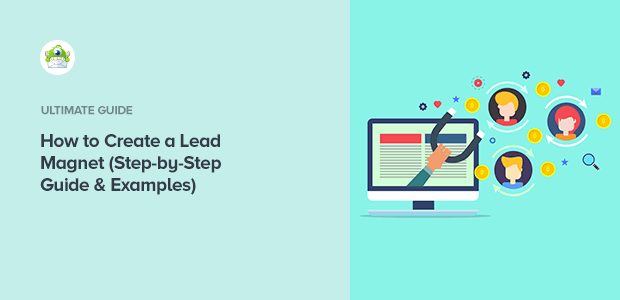
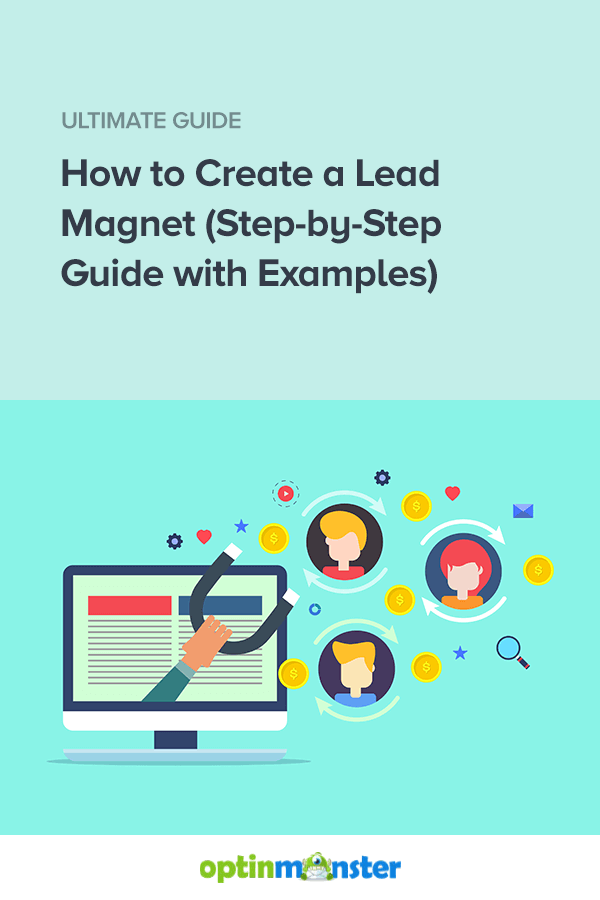

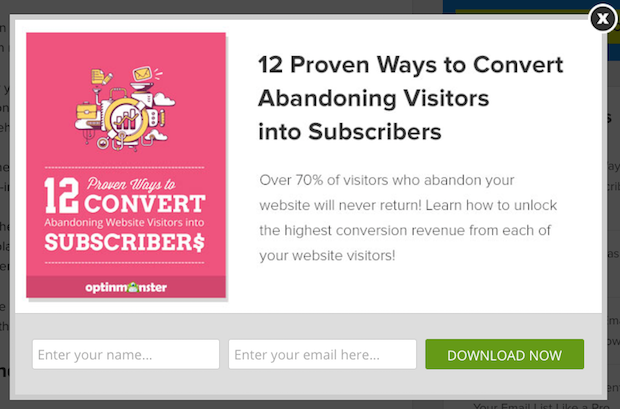





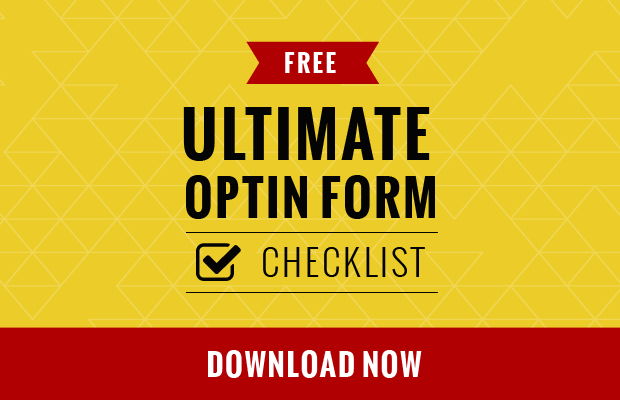
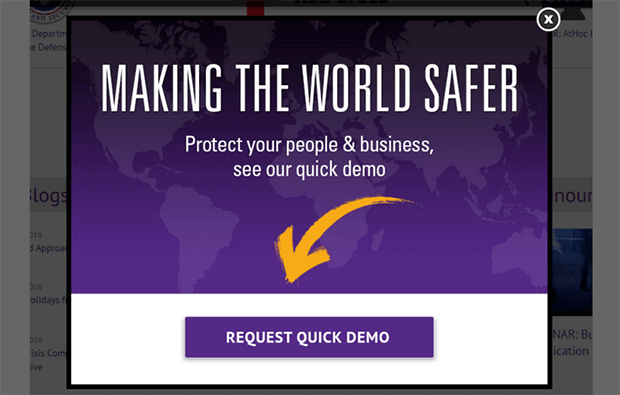

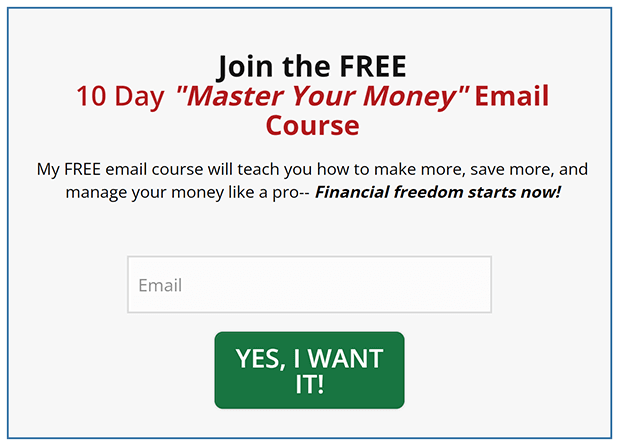


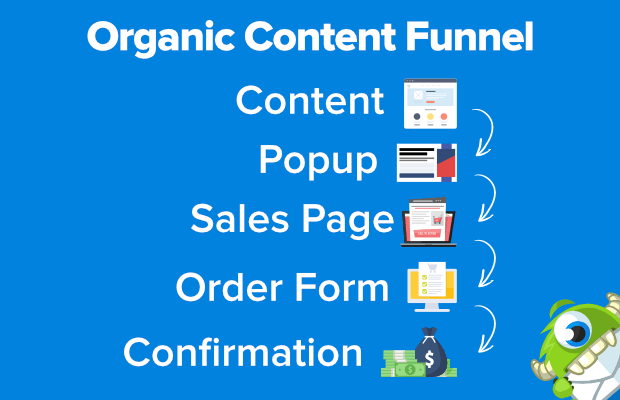
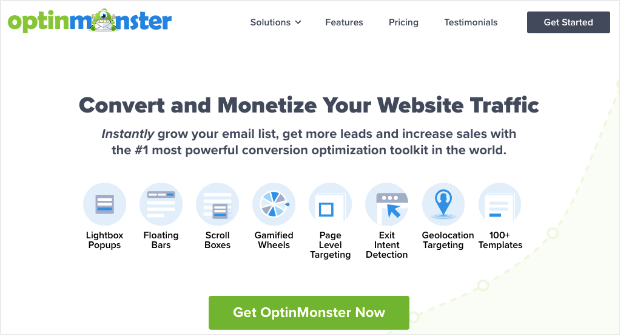
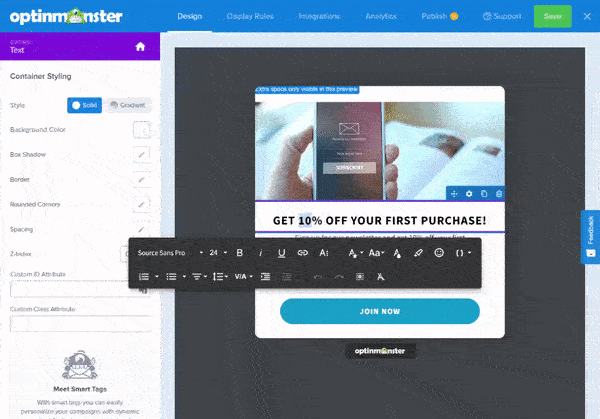
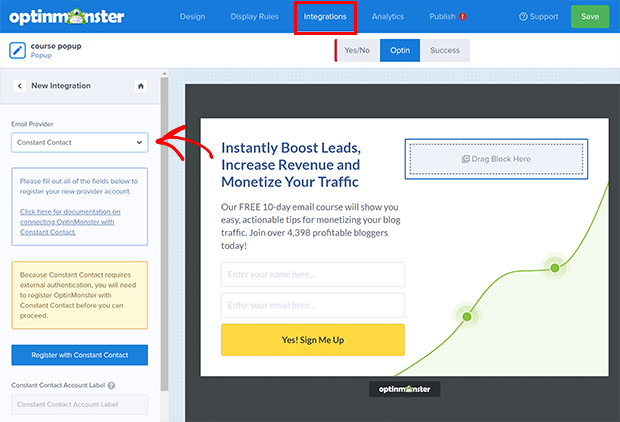

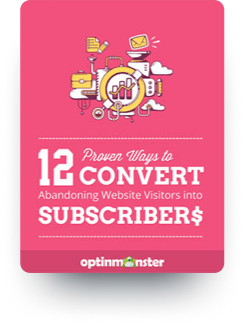


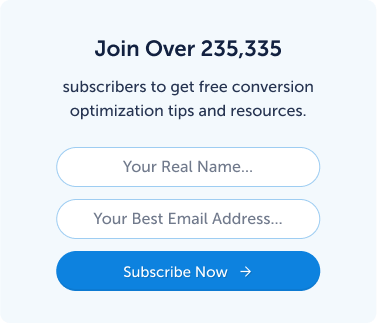



Add a Comment